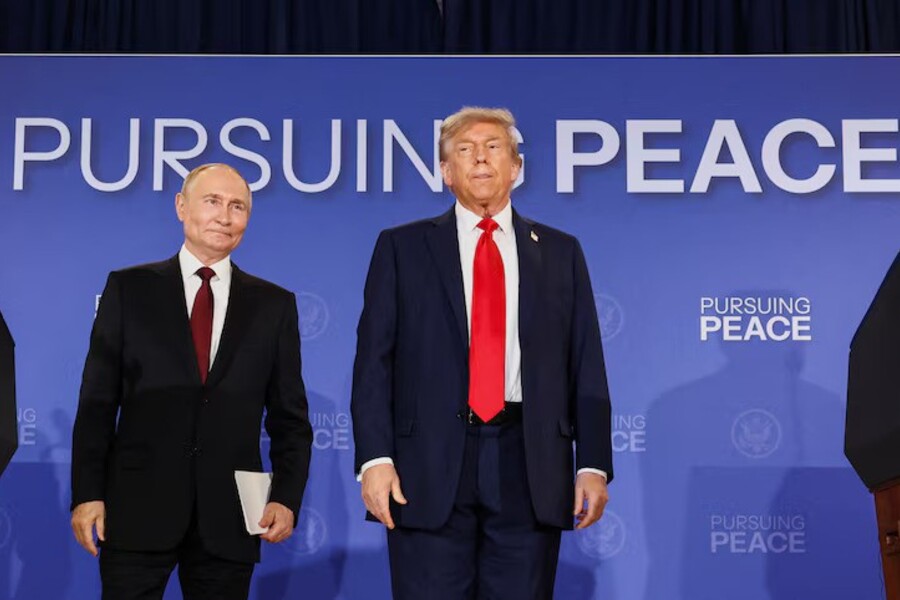President Donald Trump voiced fresh frustration with Vladimir Putin on Monday, saying that Russia’s continued long-range strikes on Ukrainian cities are undermining White House efforts to broker a cease-fire. “Every conversation I have with him is a good conversation,” Trump told reporters during an Oval Office executive-order signing. “And then unfortunately, a bomb is loaded up into Kyiv or someplace, and then I get very angry about it.” He added that he remains hopeful of progress toward an agreement even as the battlefield tempo persists.
Overnight into Tuesday, Ukraine’s air force said Russia launched 59 drones, 47 of which were shot down or suppressed, while 12 reached targets across nine locations. Russia’s Defense Ministry, meanwhile, claimed its forces downed at least 51 Ukrainian drones, including two headed toward Moscow. The figures could not be independently verified in real time but point to an unrelenting campaign of strikes and counterstrikes that complicates any immediate cease-fire.
Trump suggested the diplomatic track remains open following a recent burst of leader-level contacts. Earlier this month, he met in person with Putin in Alaska and separately hosted Ukrainian President Volodymyr Zelenskyy, along with European leaders, in Washington, D.C. He said the administration is exploring an in-person meeting between Putin and Zelenskyy—something Zelenskyy has repeatedly welcomed but the Kremlin has not committed to. “Maybe they will, maybe they won’t,” Trump said, noting he has spoken with Putin since Zelenskyy’s Washington visit but declining to share details. Pressed on next steps if a bilateral meeting fails to materialize, he hinted he may act “over the next week or two” without elaborating on potential consequences.
U.S. diplomacy continued Monday on parallel tracks. Secretary of State Marco Rubio held calls with European counterparts focused on what assurances might underpin any deal, while Trump’s Ukraine envoy, retired Gen. Keith Kellogg, traveled to Kyiv for talks with Zelenskyy on long-term security arrangements designed to deter future aggression. “We’re working very, very hard to get to a position where, in the near term, we have, for lack of a better term, security guarantees,” Kellogg said, calling the effort “a work in progress.” Zelenskyy described their meeting as productive and thanked the United States for backing a negotiated path paired with credible deterrence.
Kyiv’s requirements for such guarantees were spelled out by Foreign Minister Andrii Sybiha, who joined Rubio’s call. He said Ukraine needs assurances that are concrete, legally binding, and effective—spanning military, diplomatic, legal, and other dimensions. In practice, diplomats say, that could involve sustained air-defense and artillery support, training and intelligence cooperation, sanctions that automatically “snap back” if terms are broken, and economic assistance to harden Ukraine’s defense-industrial base. The scope and enforceability of these measures will likely determine whether Kyiv is willing to accept any cessation of hostilities.
Trump, who has repeatedly admonished Moscow over nightly barrages, also argued that recent gestures signal a willingness to talk, pointing to Putin’s visit to Alaska as a sign the Russian leader “wants to get it done.” Even so, neither side has shown signs of slowing long-range operations, and each fresh volley tightens domestic political constraints on compromise in both countries. That dynamic—intensifying pressure at home while negotiators search for common ground—underscores the stakes for Washington as it tries to keep diplomacy aligned with realities on the ground.
What to watch next is whether the Kremlin agrees to a leaders’ summit and whether the United States begins to preview the contours of a guarantees package robust enough to deter renewed attacks. Any sustained reduction in drone and missile activity would be an early signal that talks are gaining traction. For now, the administration appears committed to a two-track approach: pressing Moscow while building a security scaffold for Kyiv, even as the war’s nightly tempo continues to test the space for a deal.
